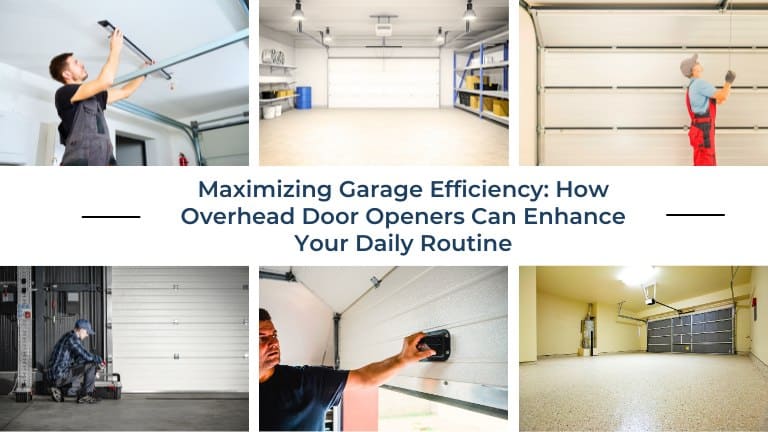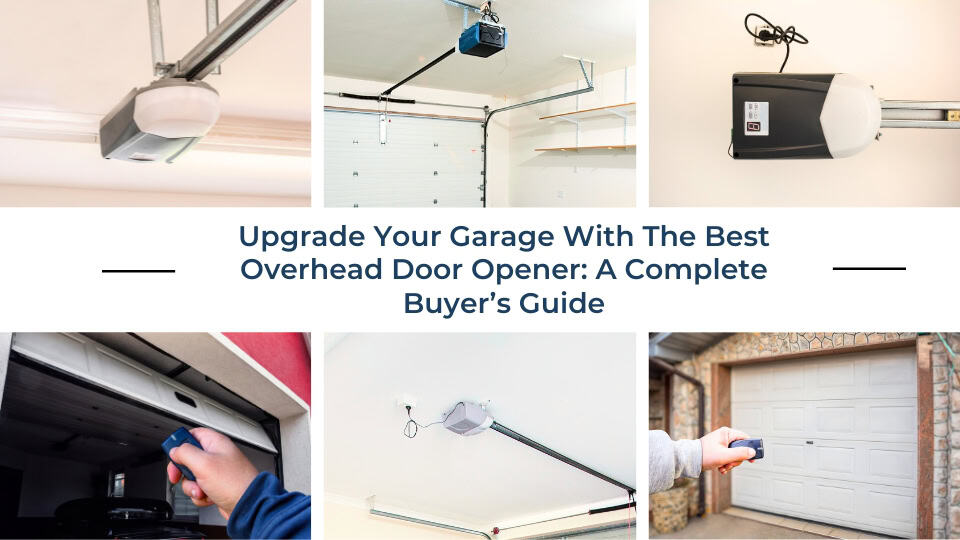Have you ever dealt with a stuck gate on a rainy morning or a loud creak when it opens and closes? If you have a driveway gate installed at your home in Victoria, BC, you already know how important it is—not just for convenience, but for security, privacy, and even curb appeal. But what many homeowners don’t realize is that, just like any other mechanical system, driveway gates need regular attention.
At Harbour Door, we’ve worked with many clients across Victoria who had beautiful driveway gates but ran into trouble because of neglect or small issues that turned into big repairs. So, we’ve put together our insights into how you can maintain your gate properly—without needing to be an expert.
We’ll break it all down into practical tips and routines you can easily follow to keep your driveway with gates working smoothly for years to come.
Contents
ToggleWhy Maintenance Matters for Driveway Gates
Before we get into the “how,” let’s talk about the “why.” Here in Victoria, the salty coastal air, frequent rainfall, and temperature swings can take a toll on exterior fixtures—gates included. Whether you’ve got a swinging gate, a sliding style, or something custom-made, regular upkeep can prevent:
- Rust and corrosion
- Sticking or misalignment
- Faulty electronics or remotes
- Squeaky, slow, or stuck movement
- Unexpected breakdowns
In short, keeping up with maintenance helps your gate last longer, work better, and cost you less in the long run.
What Kind of Gate Do You Have?
Different gate types come with their own quirks and maintenance needs. Here’s a quick comparison to help you identify what your driveway gate might need most.
| Gate Type | Key Maintenance Focus |
|---|---|
| Swing Gates | Hinges, alignment, clearance space |
| Sliding Gates | Track cleaning, rollers, and motor care |
| Manual Gates | Lubrication, rust prevention |
| Automated Gates | Sensor checks, electrical parts |
Once you know your type, it’s easier to follow the right upkeep routine.
Our Step-by-Step Gate Maintenance Routine
We’ve put together a simple routine we use when checking gates during our service calls. You don’t have to do it all at once—just tackle one or two areas each time, and before you know it, your gate will be running like new again.
1. Give It a Visual Check
Start by taking a walk around your gate. Look for anything that seems off—flaking paint, signs of rust, sagging, or uneven movement. These little things often point to bigger problems developing underneath.
If your driveway with gates looks unbalanced, moves oddly, or scrapes the ground, it might need adjustment. Sometimes it’s just a matter of tightening a hinge or clearing debris from the track.
2. Clean It Regularly
Dirt, leaves, and even spider webs can build up around your gate’s moving parts. Give it a good clean using mild soap and warm water every few months, especially after a windy or rainy spell.
Here’s what we usually clean:
- Hinges and joints
- Roller tracks (if sliding)
- Sensor lenses (for automated gates)
- Control boxes or keypads
If your driveway gate is near a garden or trees, you’ll want to clean more often to avoid buildup.
3. Lubricate the Moving Parts
Once everything’s clean and dry, apply a good quality lubricant. We usually recommend something silicone-based because it holds up well in wet climates like Victoria’s.
Focus on:
- Hinges and joints (for swing gates)
- Tracks and rollers (for sliding gates)
- Chains or gear systems (for automatic models)
Avoid using thick grease—it collects dirt and can gunk up the system over time.
4. Test All Electronics
If you’ve got an automated gate, take a few minutes every month or two to check the following:
- Does the remote work consistently?
- Are the sensors aligned and clean?
- Does the gate stop or reverse if something’s in the way?
- Are any warning lights blinking on the control box?
Electrical problems can be frustrating, but they’re often caused by small things like loose wires or dead batteries. Regular checks help you catch them before they become major hassles.
5. Keep the Surrounding Area Clear
We can’t count how many times we’ve had to service a gate that was working fine—but the nearby shrubs or gravel got in the way. To keep your driveway gates working properly, make sure:
- There’s no overgrown foliage near the gate path
- Gravel or soil doesn’t spill into the tracks
- Snow is cleared during the winter months
A clear path not only helps with function—it reduces wear on the components too.
Common Issues We See in Victoria Homes
Victoria’s coastal climate has its own unique challenges, and over time, we’ve seen the same problems pop up again and again. Here are some of the most common ones we’ve helped our clients with:
Rust and Corrosion
Metal gates, especially wrought iron or steel, are prone to rust if left unprotected. A good coat of paint or rust-proof finish helps—but it needs to be maintained.
Swollen Wood
Wooden gates can absorb moisture during wet seasons, leading to swelling, warping, or even cracking. Make sure yours is sealed properly and inspect it yearly for damage.
Motor or Remote Malfunctions
Electrical issues usually show up after a wet winter or a power outage. Most of the time, it’s just a matter of resetting the system or replacing a part.
When to Call in the Pros
We always encourage homeowners to do regular maintenance themselves, but there are times when a professional touch is needed. Here’s when we suggest reaching out:
- Your gate makes loud grinding or screeching noises
- The automation stops working suddenly
- You notice sagging or alignment problems that keep returning
- You suspect an electrical or wiring issue
At Harbour Door, we’ve worked with all types of driveway gates in Victoria and know exactly how to spot the early signs of trouble. A quick service check can save you a costly repair down the road.
Our Seasonal Gate Maintenance Checklist
Want something you can print and use throughout the year? Here’s a simple table you can refer to for each season.
| Season | What to Check |
|---|---|
| Spring | Clean off winter debris, check for rust |
| Summer | Test electronics, repaint if needed |
| Fall | Clear falling leaves, inspect hinges |
| Winter | Remove snow buildup, check for moisture damage |
Using this schedule will help you stay on top of your gate care—without having to guess when to do what.
Final Thoughts: It’s All About Consistency
Keeping your driveway gate in good working order doesn’t need to be complicated. A little bit of care every few months goes a long way toward protecting your investment, reducing frustration, and keeping your home looking great.
We’ve seen the difference regular maintenance can make. From the smooth operation to the longer lifespan of parts, it all comes down to staying consistent. At Harbour Door, we’re always here to support our clients across Victoria with expert guidance, honest advice, and reliable service.
If your driveway gates need a tune-up or you’d like a professional to take a look, don’t wait until something goes wrong. Reach out to us—we’re happy to help make sure your gate keeps working the way it should.
FAQs
1. How often should I service my driveway gate?
We recommend checking and cleaning your driveway with gates every three to four months. For automated gates, testing electronics monthly helps avoid unexpected breakdowns.
2. What’s the best way to prevent rust on my driveway gate?
Regular cleaning and applying a rust-resistant coating or paint once a year helps protect your driveway gates, especially in Victoria’s coastal climate.
3. Can I maintain my driveway gate on my own, or do I need a professional?
Basic maintenance like cleaning, lubrication, and visual checks can be done at home. But if your gate is misaligned, making loud noises, or has electrical issues, it’s best to call a professional like us at Harbour Door.
4. How do I know if my automatic driveway gate needs repair?
If your remote isn’t responding, the gate moves slowly, stops halfway, or doesn’t reverse when blocked, those are clear signs your driveway gate might need repair or adjustment.
5. What’s the most common issue with driveway gates in Victoria, BC?
Rust and moisture damage are the most common problems we see, especially after heavy rain or winter months. Keeping the gate clean and using weather-resistant materials can help reduce these issues.




